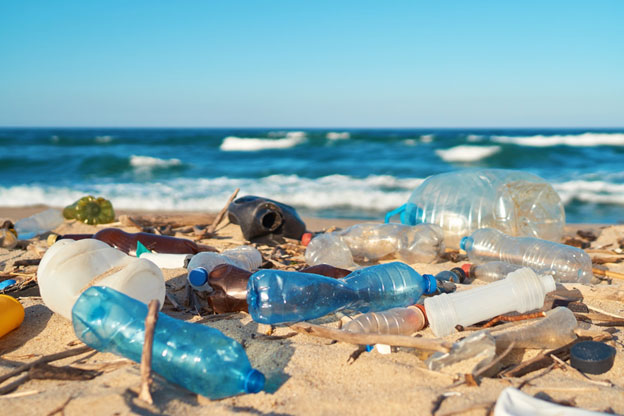UNITED NATIONS, Jan 22 (IPS) – The global plastics negotiation process, launched in 2022 under a resolution by the UN Environment Assembly, represents an unprecedented effort to combat the escalating plastic pollution crisis.
Despite progress, negotiations stalled at the end of 2024 due to diverging views on the scope, measures, financing, responsibilities and other issues. This impasse highlighted the challenge of balancing economic interests, development disparities, and planetary sustainability.
As 2025 begins, it brings with it a renewed sense of purpose and the opportunity to gather fresh energy for the critical task ahead. The turning of the calendar offers the global community a chance to reset, reimagine, and reignite the momentum needed to achieve a plastics treaty that meets the scale of the crisis.
Winston Churchill’s words; “Kites rise highest against the wind, not with it,” remind us that resilience and determination can turn obstacles into opportunities. Despite the headwinds, this treaty holds the promise to drive systemic change, protect our planet, and secure a sustainable future for all.

Life is short, art is long
A global plastics treaty is not just a policy document—it is a once-in-a-generation opportunity to reshape humanity’s relationship with plastics and redefine our stewardship of the planet. To achieve this, we need bold global leadership that rises above short-term interests and embraces a vision of shared prosperity for generations to come.
Continuing the current trajectory of linear production, consumption and disposal systems will leave an indelible mark on the planet—a legacy of pollution, environmental degradation, and missed opportunities for innovation. It is a legacy that future generations will inherit, one that we have the power to prevent.
The treaty must drive us toward a more sustainable and conscientious path, where plastics are not just reduced but reimagined within circular economies, balancing economic growth with environmental responsibility.
As we navigate this critical juncture, it is worth reflecting on the timeless wisdom of Hippocrates: “Life is short, art is long.” Our lives and leadership are fleeting, but the decisions we make today will ripple far into the future, shaping the lives of generations to come.
Rising against the winds
The path to a global plastics treaty is not without its obstacles. Divergent perspectives, economic dependencies, and varying levels of development among nations often create friction.
However, these winds of resistance should not be seen as insurmountable barriers but rather as opportunities to soar higher. Difficult moments like these demand vision, courage, and collaboration to find common ground.
This is the moment for global leadership to rise above narrow self-interest and short-term gains to embrace the transformative potential of this treaty. Bold compromises and courageous decisions are needed to prioritize the long-term health of our planet and its people. Leaders must consider the far-reaching impact of their actions on ecosystems, human health, and global stability.
The success of this treaty will hinge on our ability to navigate these challenges together. It requires that countries approach the negotiations with a sense of shared purpose, recognizing that plastic pollution transcends borders. With determination and collective action, we can turn resistance into momentum, obstacles into opportunities, and agreements into tangible change.
A call to action
The urgency of finalizing a robust and enforceable global plastics treaty by 2025 cannot be overstated. The world cannot afford further delays. With every passing moment, the problem grows more complex and costlier to address.
To the negotiators, leaders, and advocates shaping this treaty: Let the kite of ambition fly high. Rise above immediate obstacles, chart the course for systemic change, and seize this historic opportunity to leave a legacy of resilience and regeneration.
As we approach the pivotal milestones of 2024 and 2025, let us draw inspiration from history, where humanity has risen above divisions to achieve transformative milestones, such as the Montreal Protocol, which safeguarded the ozone layer, and the Paris Agreement, which united nations against climate change.
These successes remind us that strength, unity, and vision can overcome even the most daunting challenges. Together, we can channel this spirit of international cooperation to turn the tide on plastic pollution and ensure a cleaner, healthier, and more sustainable planet for generations to come.
Sulan Chen is Principal Technical Advisor and Global Lead on Plastics Offer, UNDP.
Source: UNDP
IPS UN Bureau
© Inter Press Service (2025) — All Rights ReservedOriginal source: Inter Press Service




